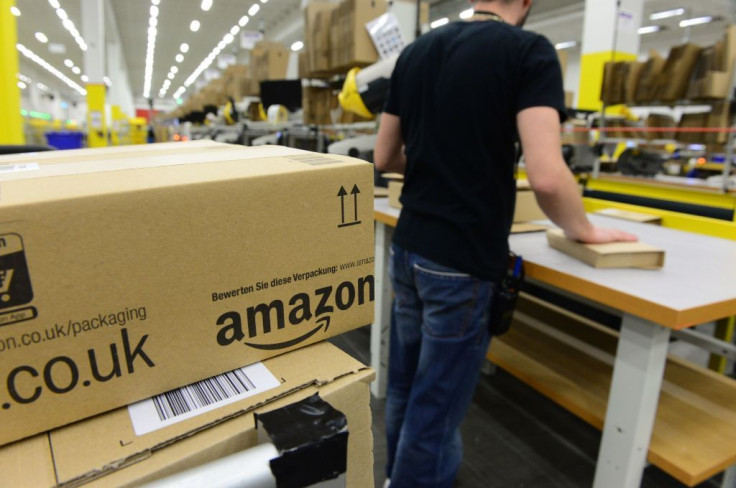Amazon Wants To Be More Like eBay, Less Like Walmart

Most consumers don't realize that when they go to Amazon.com (NASDAQ:AMZN) , more often than not, they're not actually buying products from Amazon. Third-party sellers on Amazon's marketplace account for 58% of gross merchandise volume bought on the website. In his letter to shareholders this year, Jeff Bezos said that "third-party sellers are kicking our first-party butt."
Don't let that tone fool you, though. Bezos wants Amazon to sell more items from third parties. Third-party sales are more profitable and carry less risk for Amazon. That's why the company is reportedly planning to stop making bulk wholesale orders with thousands of small vendors selling less than $10 million in merchandise per year, according to Bloomberg. Instead, Amazon will encourage them to use its third-party selling services.
It's Amazon's latest effort to become more like eBay (NASDAQ:EBAY) and less like Walmart (NYSE:WMT).
The marketplace model on steroids
eBay is the best example of an online marketplace in the United States. Instead of selling products directly to customers, eBay is merely responsible for connecting buyers and sellers. It takes a commission on every sale, charges sellers for additional perks like advertising their product listings, and doesn't have to store or ship any inventory.
It's a very profitable business model at scale. eBay posted a 23% operating margin in the first quarter. By comparison, Amazon's operating margin was 7.4% and Walmart's was just 4%.
Amazon has even more scale than eBay. eBay's gross merchandise volume for 2018 was about $94.6 billion. Amazon's third-party merchants sold $160 billion last year. And that number is growing much more quickly than at eBay.
But Amazon doesn't just offer third-party merchants a place to list their items and connect with customers. It offers storage and shipping services with its Fulfillment by Amazon service. Amazon continues to invest in its fulfillment centers and logistics capabilities in an effort to evolve its Prime shipping service from a two-day standard to one-day shipping. That's a unique service offered in the online marketplace industry, and one that's very valuable to both sellers and Amazon.
Using its moat to improve margins
Amazon doesn't have to worry too much about having smaller vendors take their products elsewhere. For vendors used to selling their products wholesale, Amazon offers the easiest way to transition to direct customer sales thanks to its Fulfillment by Amazon service. Former vendors can ship inventory directly to Amazon, similar to before. Amazon will take care of shipping orders as they come in through its marketplace. It'll even fulfill orders from other marketplaces.
Importantly, Amazon accounts for more online shopping than every other retailer or marketplace in the U.S. combined. So vendors risk losing a significant portion of sales if they leave Amazon altogether.
Moving vendors to third-party seller services ought to improve margins for Amazon in two ways. First, Amazon may be able to take a bigger cut of sales through standard commissions and its fulfillment services compared to its standard retail markup. Second, Amazon won't have to manage as many vendor relationships or as much of its own inventory, reducing overhead for the business.
In this way, Amazon is using its competitive advantages -- a massive customer base and an unparalleled fulfillment network -- to improve its profit margin. Amazon will continue to invest in both growing Prime memberships and building out its fulfillment capabilities in order to make it even more attractive as a marketplace and shift more vendors to sell directly to customers instead of wholesaling. It's just the most recent way Amazon is becoming less of a retailer like Walmart and more of a marketplace like eBay.
This article originally appeared in the Motley Fool.
John Mackey, CEO of Whole Foods Market, an Amazon subsidiary, is a member of The Motley Fool's board of directors. Adam Levy owns shares of Amazon. The Motley Fool owns shares of and recommends Amazon. The Motley Fool recommends eBay. The Motley Fool has a disclosure policy.





















